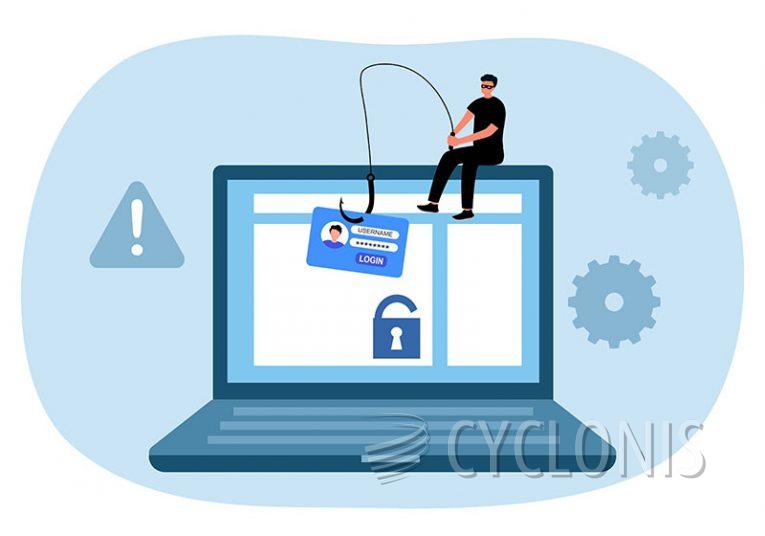AVG - Your Subscription Has Expired Email Scam

The "AVG - Your Subscription Has Expired" scam is a deceptive tactic employed by cybercriminals to trick users into downloading suspicious software. Disguised as a legitimate notification from AVG AntiVirus, this scam falsely claims that the user's subscription has expired and that their computer is now vulnerable to threats. The primary goal of this scam is to create a sense of urgency, pushing users to take immediate action without verifying the authenticity of the message.
Table of Contents
Not Affiliated with AVG AntiVirus
It is important to note that this scam is not associated with the actual AVG AntiVirus software or its parent company. Cybercriminals leverage the trust associated with well-known brands to deceive users into clicking on misleading links. The real AVG AntiVirus does not send alerts in this manner, and any such notification should be treated with skepticism.
How the Scam Works
When a user encounters the scam, often through an email, pop-up, or a malicious website, it displays a warning message stating that their AVG subscription has expired. It further claims that without renewal, their device is at risk of malware infections and identity theft. The scam typically offers a "limited-time" discount to encourage users to act quickly. However, regardless of whether the user ever had AVG AntiVirus installed, the message will always claim that their subscription has expired.
Here's what the scam says:
AVG
Your AVG Security subscription has expired
Your subscription of AVG Total Protection for Windows has expired on March 31, 2025.
After the expiry date has passed a virus may infect your PC, malicious malware might be installed, or your online identity may be stolen.
Your PC, is unprotected, it is exposed to viruses and other malware...
Discount (April 02, 2025):
You are eligible for UP TO 50% OFF
AVG Total Security
20.9.139 (10 DEVICES)Serial Number:
8A5B4-RV6N-Q8TL-OFG3Renew Subscription
The Purpose Behind the Scam
The "AVG - Your Subscription Has Expired" scam is designed to lure users into downloading or purchasing software through an affiliate marketing scheme. Scammers earn commissions by promoting legitimate or fraudulent software through deceptive methods. While some of these scams redirect users to real antivirus programs, there is no guarantee that they won't lead to harmful downloads, fake antivirus applications, or malicious websites that distribute adware, browser hijackers, and even ransomware.
The Risks Involved
Falling for this scam can lead to various consequences, including:
- System Infections: Clicking on malicious links may install unwanted software or viruses on your device.
- Financial Losses: Users who purchase software through scam links may be unknowingly providing payment details to fraudulent entities.
- Privacy Concerns: Some scams harvest personal information, which may lead to identity theft or unsolicited account access.
- Browser Hijacking: Users may experience intrusive pop-ups, unwanted advertisements, and homepage modifications due to adware.
Similar Scams to Watch Out For
Scams like "AVG - Your Subscription Has Expired" are not isolated incidents. Cybercriminals frequently use similar tactics, impersonating well-known security brands to instill fear in users. Other common scams include:
- "Norton - Your PC Is Infected With 18 Viruses"
- "Viruses And Malware Files Have Been Detected"
- "McAfee - Your PC is infected with 5 viruses!"
These scams operate in a similar manner, using fake alerts and warnings to manipulate users into taking unnecessary actions.
How to Protect Yourself from Online Scams
The internet is filled with deceptive websites and fraudulent schemes, but users can take steps to protect themselves. Here are some best practices to stay safe online:
- Verify the Source: If you receive an email or notification claiming your antivirus subscription has expired, visit the official service provider website instead of clicking on any links.
- Be Skeptical of Urgent Warnings: Scammers use fear tactics to pressure users into making hasty decisions. Always take a moment to assess the legitimacy of a message.
- Avoid Downloading from Unverified Sources: Only download antivirus software and other security programs from official websites or trusted vendors.
- Check for Suspicious URLs: Cybercriminals use fake websites with URLs that closely resemble real ones. Always double-check the web address before you enter any information.
- Block Unwanted Notifications: Many scam websites request permission to send browser notifications. Decline or block these requests to avoid future pop-ups.
- Keep Software Updated: Ensure your operating system, antivirus, and browser are routinely updated to protect against emerging threats.
- Use Email Filters: Configure your email settings to filter out spam and phishing attempts.
Key Takes
The "AVG - Your Subscription Has Expired" scam is just one of many deceptive tactics cybercriminals use to manipulate users into taking unnecessary actions. By staying informed and exercising caution, users can avoid falling victim to such scams. Always verify messages that claim your security is at risk and rely on official sources for software updates and renewals. A little vigilance can go a long way in protecting your digital security and personal information.








